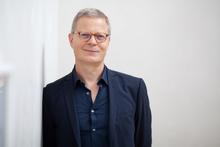Take the Next Step
Finding the right college means finding the right fit. See all that the College of Engineering and Computer Science has to offer by visiting campus.
On this page:

If you believe Michio Kaku's translation of Werner Heisenberg's writings on quantum physics for a general audience, then quantum theory is on the trail of a "God Equation" and "Theory of Everything." Expectations of so-called "quantum technology" are also high - the name was only coined in 1997 but since that time has risen rapidly to the top. “Quantum technology” is often paired with "quantum supremacy," and the curve representing the increase in semantic frequency of this militaristic expression is even steeper than that of "quantum technology." In fact, research proposals for quantum technology are often characterized by bellicose rhetoric, which has demonstrably contributed to the success of these proposals. Cold war overtones or references to the Second World War can be found again and again. For example, sometimes a “quantum Pearl Harbor event” is to be averted through quantum technological armament, while sometimes there is talk of a “Q-Day” that is analogous to “D-Day”. Still others, such as Karen Barad in her book Nature’s Queer Performativity, have considered the queerness of the atom in its “radically deconstructive ways of being.” It seems that Heisenberg’s uncertainty principle applies not only to quantum physics itself, but also to the discourse about it. If it is true, as Richard Feynman succinctly states, that “nobody really understands quantum mechanics,” then it makes sense that quantum physics and technology offer themselves as a projection surface for a diverse range of ideas.
A Google image search with these two prompts shows immediately that the imagery of “quantum computing” differs fundamentally from that of “computing.” The current lecture will focus on the cultural projections outlined above, i.e., quantum myths, images, phantasmagorias, and promises of salvation, focusing on the religious exaltation of quantum technology. Quantum computers are repeatedly staged as a golden monstrance, which in the Catholic tradition serves paradoxically to make the invisible visible. Often housed in a black shrine, quantum computers are also reminiscent of the imagery of the Ark of the Covenant and the Kaaba. The fact that a quantum computer is a technical object is not a contradiction, for the quantum computer is a mythological reincarnation of that Citroën DS (pronounced ‘Déesse’, French ‘goddess’) that Roland Barthes described in his “Myths of Everyday Life” as an object that “obviously fell from the sky”, as “one of those objects that came to us from another world”.
The College of Engineering and Computer Science is committed to creating an inclusive and accessible event. If you need a reasonable accommodation, please contact Jessica Blevins at jessica.blevins@wright.edu or 937-775-5001. All requests must be made at least three business days prior to the event. We will attempt to implement late requests but cannot guarantee they will be met.
Finding the right college means finding the right fit. See all that the College of Engineering and Computer Science has to offer by visiting campus.